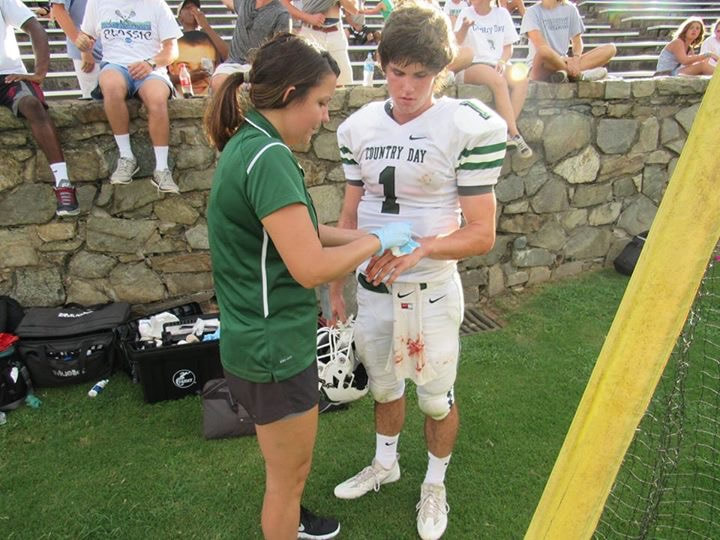|
The path to my graduate degree in Clinical Mental Health Counseling would probably give some of my classmates extreme anxiety. I only applied to one school. I decided to apply two weeks before the deadline. I submitted my application on the day that it was due. I did not know of any theorists besides Frued ( who doesn't know Frued?) and the only Psychology class I had ever taken was focused on athletes. But, with all that said, I have never felt like I belonged somewhere more. At the beginning of each semester we go around the room, introduce ourselves and say a little bit about our background. It usually goes something like this: "Hi! My name is Tina and I'm on the Clinical Mental Health track. I worked as an Athletic Trainer at a high school for six years before beginning this program. I am from Boston and a huge sports fan!" The responses range from: " Ohhhh.. so you can help me get back in to shape?", "How did you end up here?" and my personal favorite "Go Yankees! / Patriots suck!" Yes, I can probably help you get back in shape, but I actually specialize in working with injured athletes. I guess you can say that I have always been drawn toward people who need support in reaching their full potential. I am not exactly sure how I ended up here, but I do know there is no where else I am supposed to be. My path to getting here may not be traditional, but does that make it wrong? So, when did I know I wanted to be in the mental health field? The most honest answer I can give is "the day I actually submitted my application to graduate school?" but I think a part of me always knew it was where I belonged. I remember sitting in the back of my parents massive red van with my bff Rose, answering my mothers question about what I wanted to be when I grew up with a certain "psychiatrist!"
It could have been when an athlete I was working with committed suicide. As a result of that experience for my senior thesis I conducted research on the psychosocial aspects of athletic training, instead of the typical injury rehabilitation or diagnosis topics. But, it wasn't until I sat down and made a pros and cons list about my job as a high school athletic trainer that I realized it was truly what I was most passionate about. Even though I don't currently work as an athletic trainer, I still haven't left the world of athletics. My internship is at the Athletic Academic Center at a University, and I currently advise all concussed student athletes on their return to academics at the high school where I work. I can still be found on the football sideline every Friday. I believe my background has given me a special opportunity to connect with and support a special population that needs mental health support more than we recognize. I hope you follow me along this journey! I would love to hear from you! Questions: Did you always know what you wanted to do in life? Have you taken a non-traditional path to your current career? What would you like to know about athlete mental health?
3 Comments
2/29/2024 04:16:40 am
Wow, your leap into Clinical Mental Health Counseling is like diving into the deep end with only one swim lesson under your belt – thrilling and bold! Ditching the traditional route and trusting your gut is the kind of plot twist that keeps life interesting. Your story’s got the vibe of an underdog sports movie, where the protagonist finds their calling in the most unexpected way. It’s super cool how your love for sports and genuine care for athletes has steered you into a niche that’s so needed yet often overlooked
Reply
Leave a Reply. |
Christina TaylorFormer Athletic Trainer, current Mental Health Professional. Boston sports lover. Archives
December 2023
Categories
All
|


 RSS Feed
RSS Feed